After five-decades of freeze, US thaws ties with Cuba
Cuba has agreed to release 53 political prisoners, a US official says, while three Cubans will be released in exchange
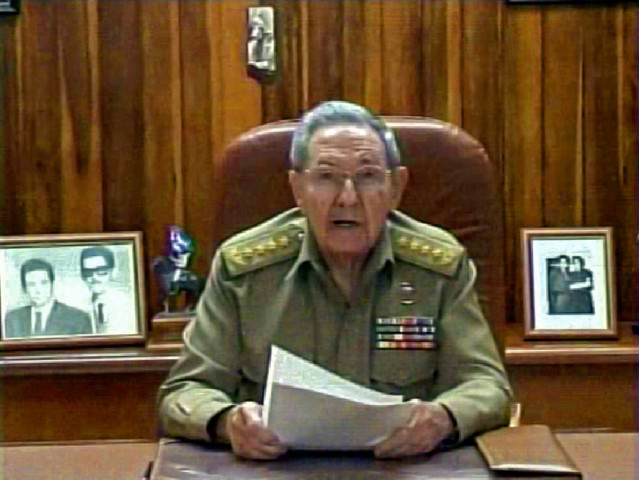
Cuba has agreed to release 53 political prisoners, a US official said amid a historic thawing of ties announced by the two nations.
"The Cuban government agreed to release 53 prisoners whose cases we brought to their attention, these are individuals that we believe are political prisoners and we welcome very much the release," the senior administration official said.
"A number of those individuals have been already released and we expect to continue to see the releases going forward," the official said.
Cuban President Raul Castro said that three Cuban prisoners freed in exchange for jailed US contractor Alan Gross had returned to the communist island after a historic breakthrough in the Cold War enemies' relations.
Gerardo Hernandez, Ramon Labanino and Antonio Guerrero, who were convicted in 2001 on espionage-related charges, have arrived back in Cuba, whose government considers them heroes for fighting anti-communist Cuban exile groups, the president said in a national address.
In the wake of a prisoner exchange, US officials said President Barack Obama was ready to negotiate terms for re-opening the American embassy in Cuba that has been closed since 1961.
Obama spoke to his Cuban counterpart Raul Castro by telephone, and both leaders were to make addresses at 1700 GMT outlining the next steps in an epochal thaw in relations.
"It is clear that decades of US isolation of Cuba have failed to accomplish our enduring objective of promoting the emergence of a democratic, prosperous, and stable Cuba," the White House said.
"Today, we are renewing our leadership in the Americas," it said, in a statement released to introduce Obama's speech, and confirming that talks will begin on re-establishing full diplomatic ties.
"We are choosing to cut loose the anchor of the past, because it is entirely necessary to reach a better future - for our national interests, for the American people, and for the Cuban people."
Obama said that a "new chapter" had been opened in Washington's ties with Cuba, saying it was time to end an "outdated approach" that had failed to move relations forward.
"Through these changes, we intend to create more opportunities for the American and Cuban people and begin a new chapter," Obama said.
The US leader said he wanted to have an "honest and serious debate" with Congress about the prospects of the full lifting of a half-century-old trade embargo on Havana, acknowledging that with Havana, "isolation has not worked."
He also instructed Secretary of State John Kerry to review Cuba's designation as a state sponsor of terrorism.
"We will begin to normalise relations between our two countries. Through these changes, we intend to create more opportunities for the American and Cuban people and begin a new chapter," Obama said.
Obama thanked Pope Francis, the first pontiff from Latin America, for playing a key role in brokering the rapprochement between the Cold War foes, separated by just 90 miles (150 kilometers) of choppy seas.
"We should not allow US sanctions to add to the burden of Cuban citizens that we seek to help. To the Cuban people, America extends a hand of friendship," Obama said.
"Todos somos Americanos," he said in Spanish, in a message to the Cuban people, or "We are all Americans."
In Havana, state television said that Castro, brother of Cuba's revolutionary leader Fidel, would also make a speech.
Castro said that Cuba had agreed to reestablish diplomatic ties with Cold War enemy the United States after a prisoner swap paved the way to a historic breakthrough.
"We have agreed to reestablish diplomatic ties after more than half a century," he said in a nationally broadcast address.
He added, however, that the divisive issue of the US trade embargo, which he called the "blockade," remained unresolved.
US officials said that Pope Francis, the first pontiff from Latin America, had played a key role in brokering the rapprochement.
The United States imposed a trade embargo against Cuba, the Cold War foe closest to its shores, in 1960 and the two countries have not had diplomatic relations since 1961.
The embargo hurt the Caribbean island state's economy, but it failed to unseat the communist governments led by the Castro brothers.
Obama now has only two years left in office, Fidel Castro is 88 and ailing, and Raul is 83. With the window for the rival leaders to revive relations, both sides were under pressure to make a gesture.
Senior US lawmaker Dick Durbin, a member of the Senate foreign relations committee, hailed the move.
"Opening the door with Cuba for trade, travel and the exchange of ideas will create a force for positive change in Cuba that more than 50 years of our current policy of exclusion could not," he said.
Despite the tensions, both Cuba and the United States have maintained channels of communication, as Havana has taken steps to liberalise its communist-led command economy.
The rivals have maintained "interests sections" in each other's capital, and contacts have increased in recent months as medical teams from both countries responded to the Ebola epidemic in West Africa.
Obama has also eased rules on travel by US citizens and residents to the island, while sticking to a hard-line trade embargo against a country just 90 miles (150 kilometers) off the coast of Florida.
Several polls have shown that a majority of Americans favor a change in policy toward Cuba, even in Florida, home to a large anti-Castro Cuban-American community.

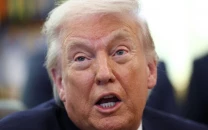
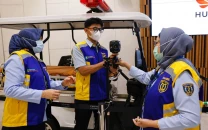

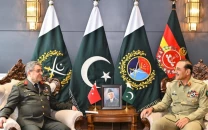
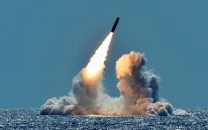













COMMENTS
Comments are moderated and generally will be posted if they are on-topic and not abusive.
For more information, please see our Comments FAQ